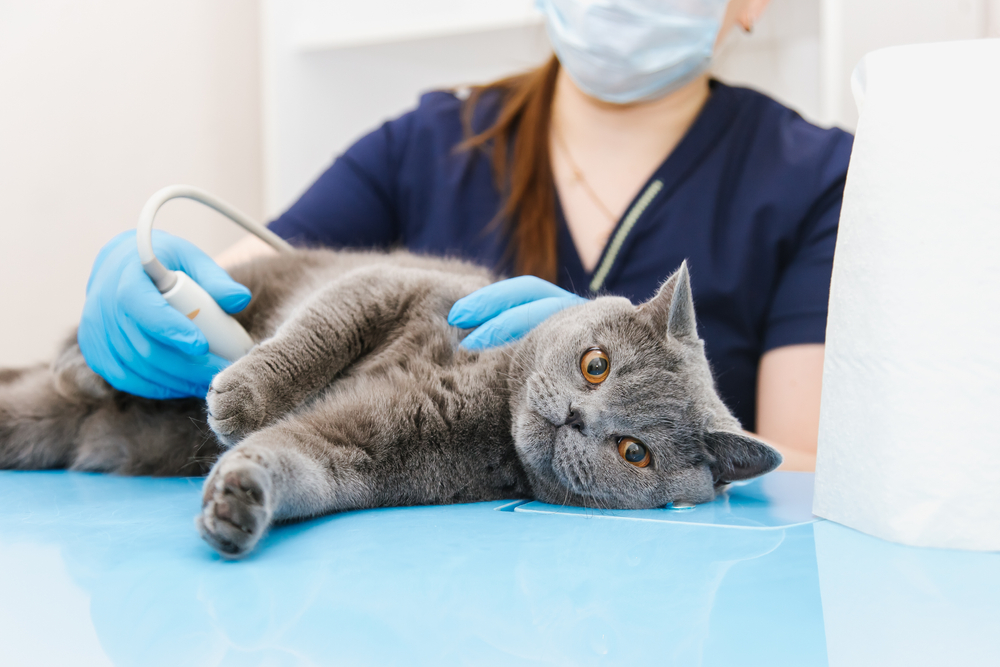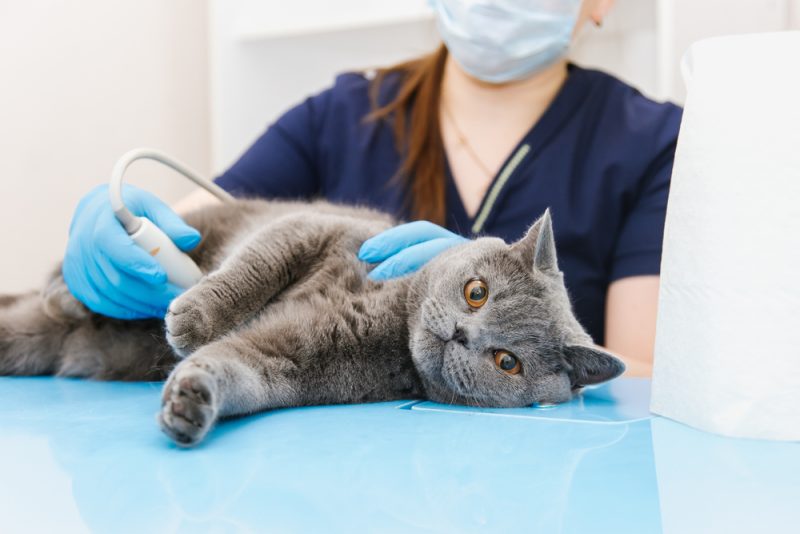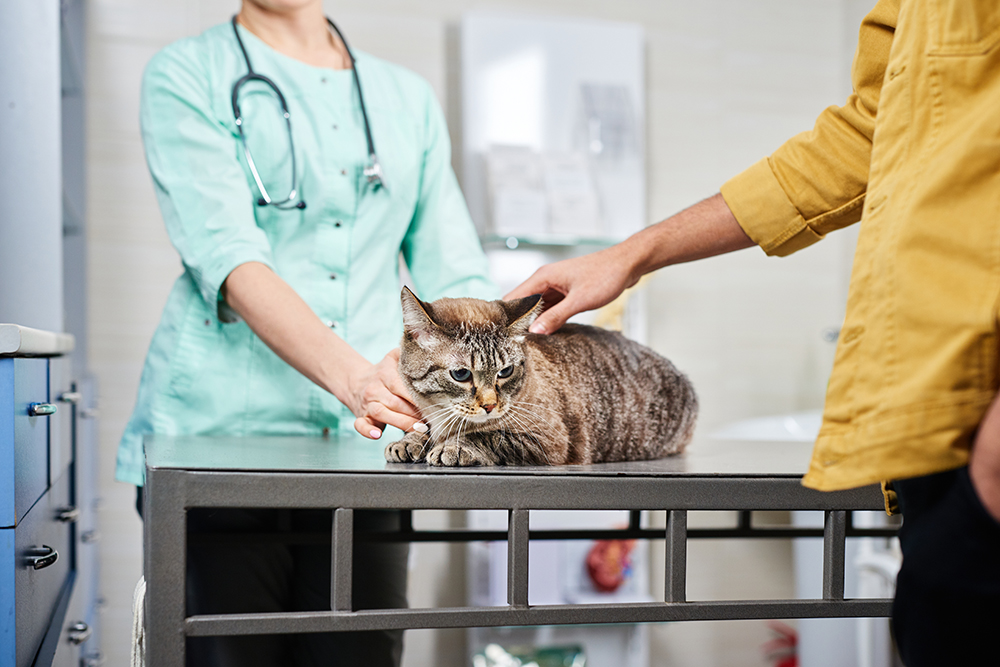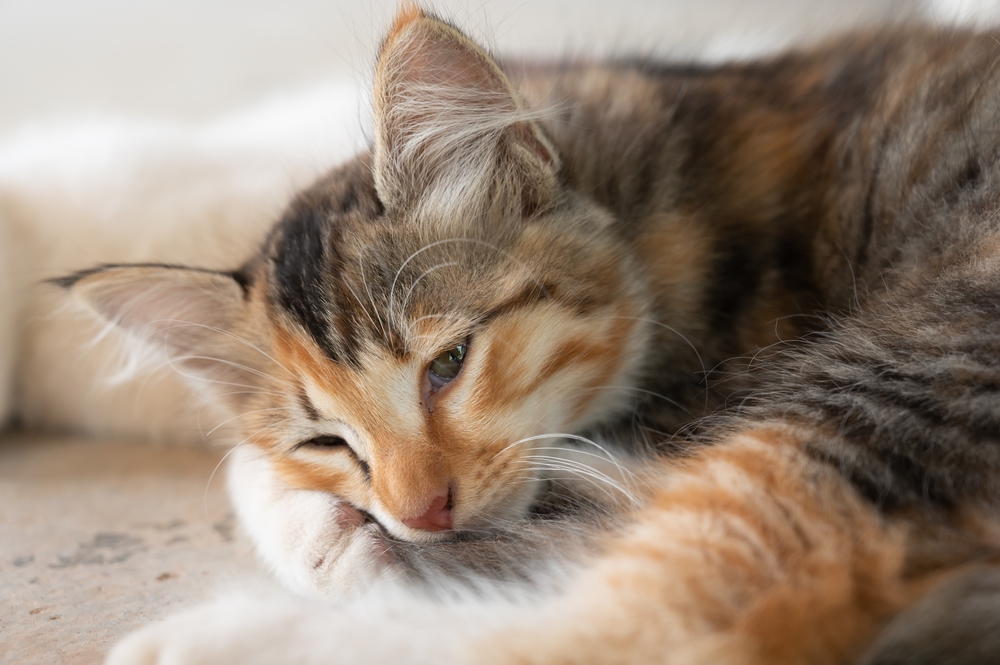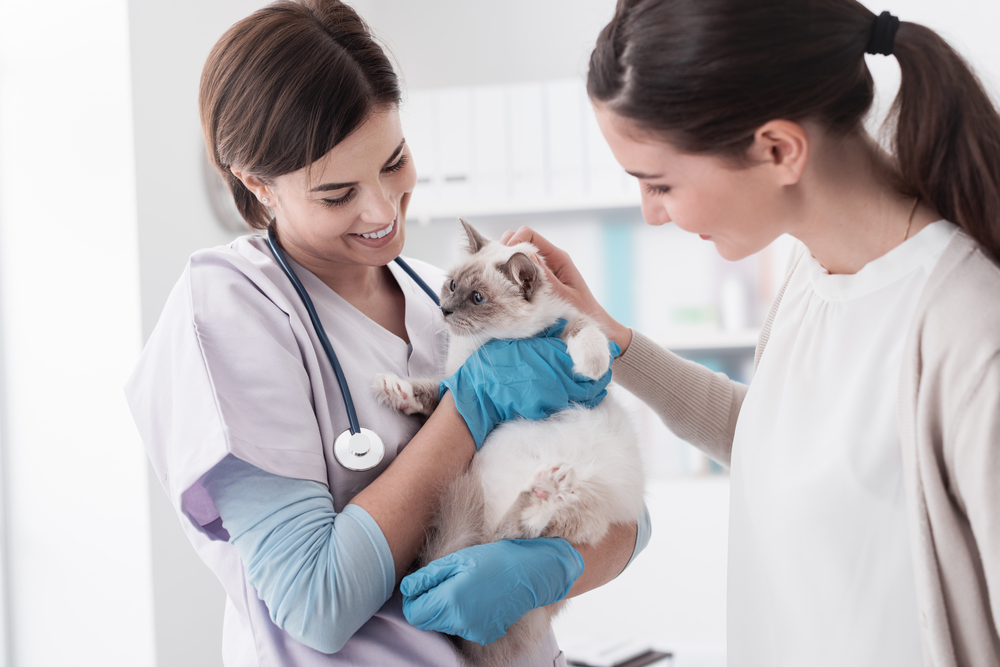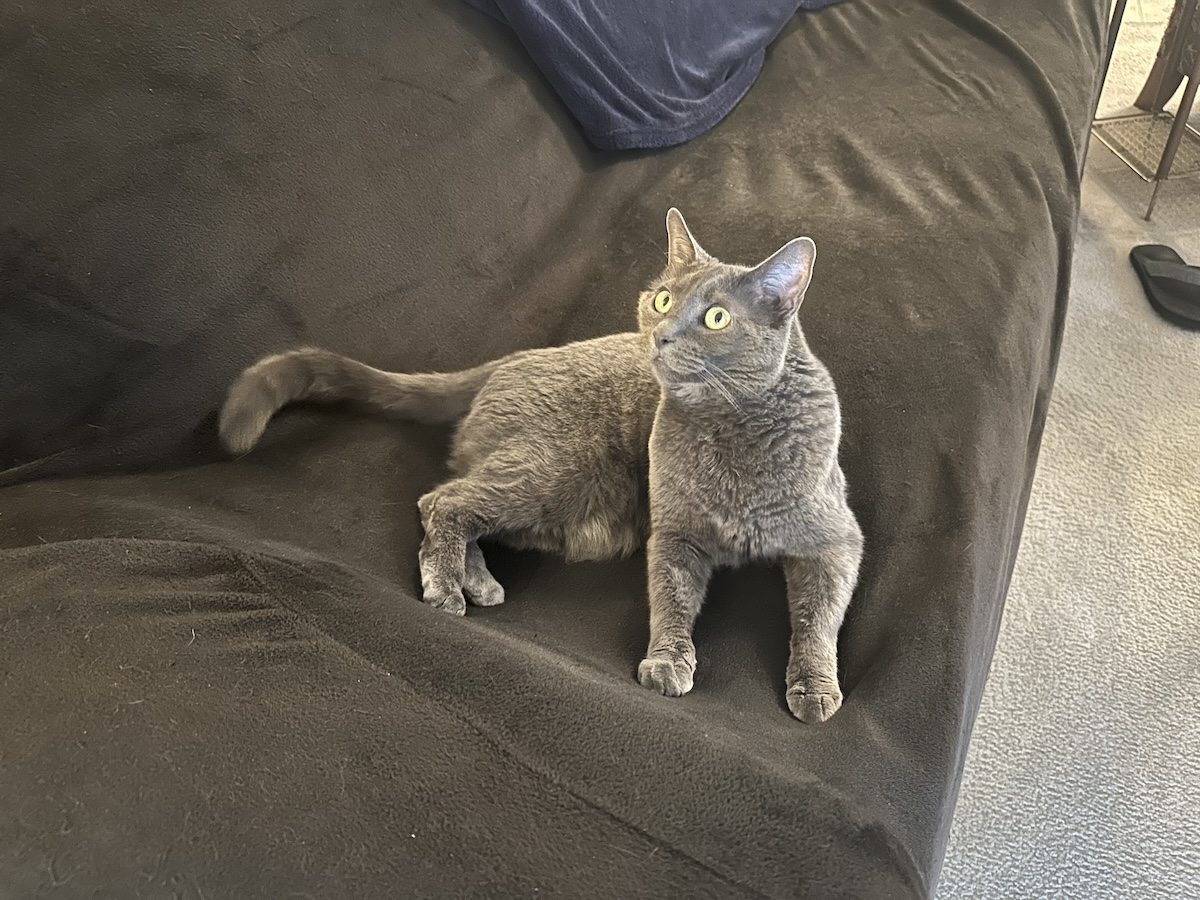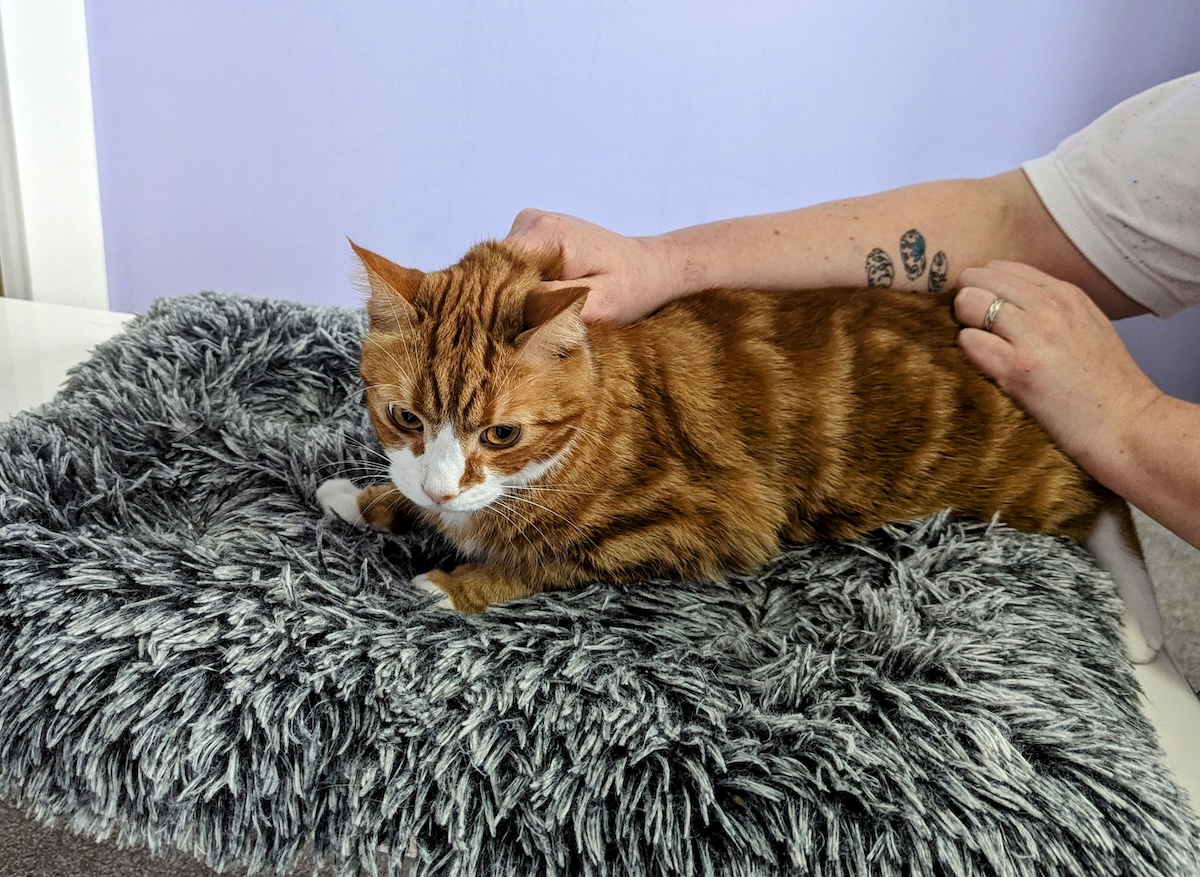Click to Skip Ahead
Your cat’s liver is a hard-working organ that performs various functions to ensure that the body’s systems stay healthy and run smoothly. It not only removes wastes and toxins from your cat’s blood but also breaks down medications, helps with the digestion of food, stores vitamins, and minerals, aids the immune system, produces bile and proteins, and generates factors that help clot blood. One can easily imagine that if the liver fails, so do many other body systems.
Liver disease can have detrimental effects on your cat’s health and well-being. Let’s take a closer look into the disease process and how we can help cats suffering from a liver malady.

What Is Liver Disease in Cats?
Liver disease occurs from an alteration in the normal function of the liver or through a secondary process that also affects the liver. While the liver is capable of regenerating itself, which helps protect it, it is also susceptible to injury when it encounters harmful substances that it metabolizes and detoxifies from the body.
What Are the Signs of Liver Disease in Cats?
Liver disease can manifest in vast and diverse ways. Cats with liver disease may show various signs that affect different body systems, such as:
- Lethargy
- Lack of appetite
- Weight loss
- Vomiting
- Diarrhea
- Jaundice
- Abdominal swelling (ascites)
- Abnormal bleeding or bruising
- Increased thirst and urination
- Nervous system abnormalities, such as head pressing, circling, seizures, and coma
As in people, cats may have yellowing of their skin, the whites of their eyes, and mucus membranes, such as their gums, when their liver is not working properly. This is known as jaundice. Jaundice occurs when bilirubin levels build up in the bloodstream, causing yellowing of the tissues. Bilirubin is produced when old red blood cells and hemoglobin are broken down. This is normally not an issue when the liver filters and removes bilirubin from the bloodstream. However, in cats with liver disease, the filtering of bilirubin is impaired, which may show as the classic yellowing seen with jaundice.
What Are the Causes of Liver Disease in Cats?
Several diseases and disorders can affect the liver. Common causes of liver disease (with examples) in cats include:
- Obesity
- Bacterial, viral, fungal, and parasitic infections
- Toxins
- Tylenol (acetaminophen)
- Blue-green algae
- Inflammation of the gallbladder and/or liver
- Bile duct obstruction
- Gallbladder or bile duct rupture
- Congenital issues
- Portosystemic shunt
- Polycystic disease
- Hepatic amyloidosis
- Endocrine disorders causing secondary liver disease
- Diabetes mellitus
- Hyperthyroidism
- Cancer
- Biliary adenomas
- Biliary adenocarcinoma
- Lymphoma
- Other blood cell tumors
Cats can be born with disorders affecting the liver. One such congenital condition is a portosystemic shunt. A shunt impairs the liver’s ability to remove toxic products from the gastrointestinal tract. As a result, blood is shunted away from the liver into the systemic circulation, where toxic substances like ammonia enter the bloodstream.
Ammonia is normally detoxified by the liver. When this process is not working correctly, toxins in the blood can affect the nervous system, the GI, and the urinary tract. Hepatic encephalopathy is a secondary result of liver disease, producing signs like altered behavior and disorientation.
How Is Liver Disease Diagnosed in a Cat?
After carefully reviewing your cat’s past medical history and current signs and performing a complete physical exam, your veterinarian may recommend diagnostic testing, such as bloodwork, urinalysis, abdominal X-rays, and ultrasound, to evaluate the function and appearance of your cat’s liver.
A liver biopsy while your cat is under heavy sedation or general anesthesia may also be recommended to help determine a diagnosis. This is accomplished by guiding a biopsy needle through the skin and directly into your cat’s liver to aspirate a sample of liver cells (also known as fine needle aspiration) or by taking a small amount of liver tissue during surgery. The tissues and cells are then looked at under a microscope by your veterinarian or a trained veterinary pathologist for abnormalities, or they can be cultured for bacteria or analyzed for toxins.
How Do I Care for a Cat With Liver Disease?
If your cat has been diagnosed with liver disease, there are options to help manage or even cure the condition, depending on the underlying causes. Prescription diets are available that are liver friendly, meaning they contain nutrients that are easy for the liver to process. Specific medications are often recommended to help support liver function. Your veterinarian may also recommend vitamin and mineral supplements, as vitamin deficiencies often occur with liver disease.
In cases of more severe liver disease and/or clinical signs, hospitalization of your cat with intravenous fluids, medications to support liver function, antinausea medications, and electrolyte imbalance corrections may be necessary. If your cat refuses to eat, a feeding tube may be placed to facilitate proper nutrition while the liver heals. Blood or plasma transfusions may be necessary where liver disease impacts your cat’s blood-clotting abilities. Cats with liver cancer may benefit from chemotherapy and/or surgery to help fight the disease process and prevent or slow the progression of the cancer.
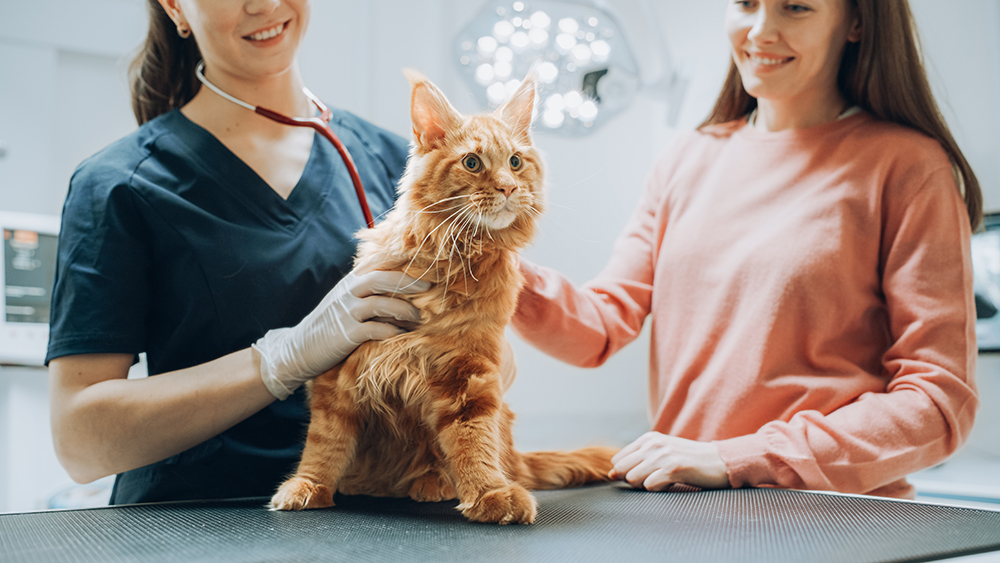

Frequently Asked Questions
How Does Obesity Contribute to Liver Disease in Cats?
Obese cats that undergo a period of stress resulting in poor appetite or lack of food may experience hepatic lipidosis also known as fatty liver disease. This occurs when the body rapidly breaks down fat reserves, which then accumulate in the liver. The liver is unable to properly process this sudden influx of fat, which then builds up and prevents the liver from performing its normal functions. Untreated fatty liver disease is a serious condition that can lead to liver failure and may result in death.
Is Tylenol Safe for Cats?
Several toxins can damage your cat’s liver, including Tylenol. This is why it is important to consult with your veterinarian prior to giving your cat any medication, including over-the-counter medicines. If you believe that your cat has consumed a toxic substance, reach out to your veterinarian, the Pet Poison Helpline, or the ASPCA Animal Poison Control for assistance.
How Is Liver Disease Treated?
Taking care of any underlying issues that may be causing liver disease (e.g., diabetes mellitus, obesity, etc.) is important. Prescription diets, medications that support liver function, and supportive care are often indicated in the recovery process.
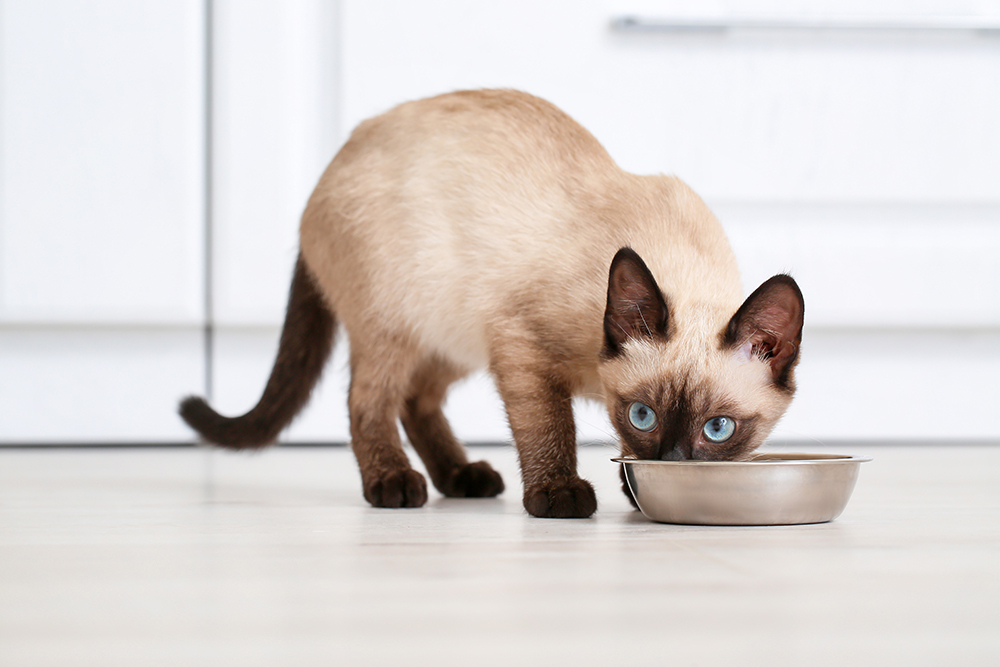

Conclusion
The liver performs various functions to keep your cat healthy. While it has regenerative capabilities, certain conditions, diseases, and toxins may impact its ability to work properly. Prompt treatment of liver disease is crucial for the best outcome. Treatment for liver disease may include correcting underlying issues, intravenous fluid therapy, medications to support liver function, and dietary management.
Featured Image Credit: Libre, Shutterstock

